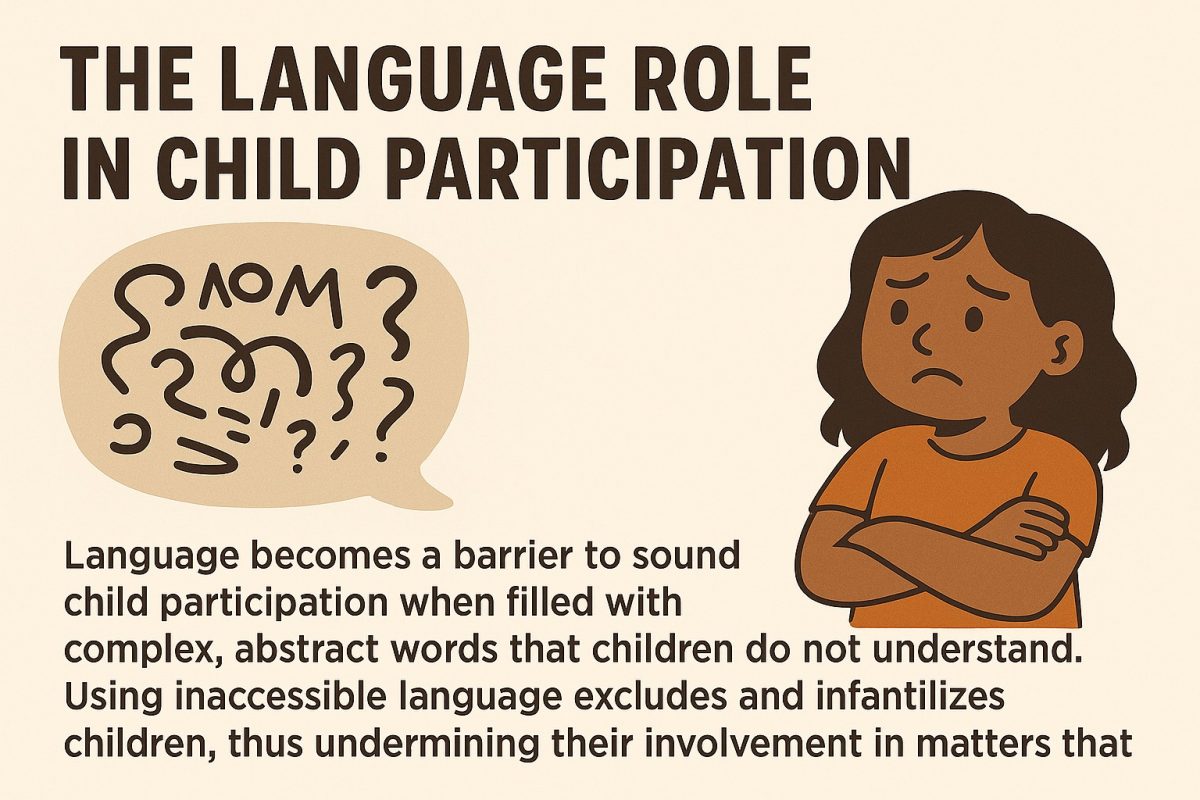Written by Jermaine Magethe
Children taking part in activities is not just about being present, it’s about being heard, understood, and taken seriously. But what happens when the very words used to include them end up pushing them out? In Child participation, language is more than just a way to talk; it is a form of power. The way we speak about children and to children shapes how they are involved in social, political, and community life. Language shows and spreads our beliefs, values, and ideas about who is important. If we look at it closely, we can see that using difficult, unfair, and adult-focused language can quietly but strongly block true child participation.
I remember attending an event at Safaricom during Innovation Week that focused on coding. As children who were new to coding, we found the language used during the sessions very technical. This made it difficult for us to fully participate or understand what was going on. They also introduced tools like Makey Makey, which we were seeing and using for the first time. Without any prior knowledge or a simple explanation, it became even harder to engage. The experience showed me how language and assumptions about prior knowledge can really limit meaningful child participation, especially in tech spaces.
Alice Njoki, child participant, Mtoto News
Language becomes a barrier when it is full of hard words, formal talk, and ideas that children do not understand. In meetings, plans, or class talks, complicated language turns children into watchers of conversations that affect them directly. In this way, it becomes just a show something done to tick a box without giving children real power.
When children are invited to take part using language they cannot understand, it doesn’t just leave them out, it treats them like they are not ready. It gives the message that children cannot understand or take part unless they “grow up” and “learn the language.” This creates a cycle where children are never really given a chance to be part of decisions because they are not taught or allowed to try. They are stopped before they even begin.
Language can also be unfair when it sounds kind but still keeps children powerless. For example, people say things like, “They are our future leaders,” “Let’s give them a voice,” or “They need our protection.” These words might sound nice, but they still place adults above children. Calling children “future leaders” makes it seem like they are not important now. It makes childhood feel like just training for adult life instead of being a full part of life. The hidden message is this: children must wait their turn, and until then, their thoughts and concerns can be ignored.
Also, saying “let’s give them a voice” makes it sound like children don’t have voices unless adults allow it. This ignores the truth that children already have voices; it’s just that systems and leaders often don’t want to listen to them.
There are also words and ways of speaking that support narrow ideas of how a “good child” should act, being quiet, respectful, and thankful just for being allowed to speak. This puts rules on how children should behave in conversations: they must be polite and stay within what adults think is okay. If children speak out strongly, disagree, or look upset, they are called “disruptive” or “immature.” This way of judging how children talk and act means they can only take part if they act like adults. So, participation stops being about real conversation and becomes about fitting into adult rules and goals.
Sometimes children are invited to events or projects very late, just to “tick the box” of including them. In these cases, people use words like “children were consulted” or “we included young voices” without really saying how children were involved, whether they had power, or what happened because of their input. This last-minute inclusion shows the belief that child participation is just a tradition, not something truly valued. It’s the same as what happens to other groups who are often left out; they are seen, but not heard.
When we change how we speak, we don’t just change the words we make room for children to take part as full people, now and always.

